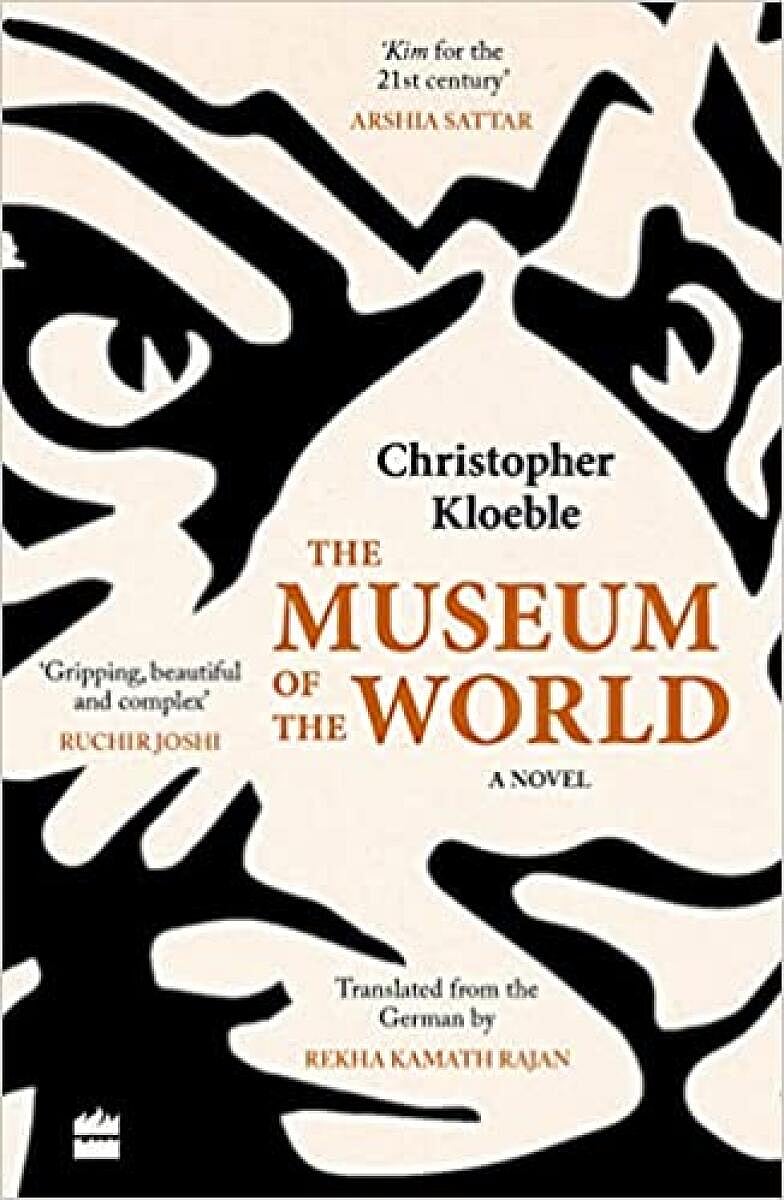
Colonial expeditions in the 19th century mostly expropriated local objects and information to enrich Western knowledge. Indigenous culture appealed to them primarily as something alien and things to be taken away as museum pieces. Brothers Schlagintweit — three German siblings who undertook a three-year-long scientific expedition across India and the Himalayas in the mid-19th century — were not any different. Theirs was an undertaking considered ‘one of the most expensive and elaborate expeditions of the modern era’.
The Museum of the World is an adventure story woven around these three Germans and their entourage. Set between 1854-1857, this is an immensely readable novel by award-winning German writer Christopher Kloeble that blends fact and fiction. Hermann, Adolf and Robert Schlagintweit enlist the services of Bartholomew, a 12-year-old orphan from Bombay who has a flair for languages. Unlike the Schlagintweits, the precocious polyglot orphan hero Bartholomew is Kloeble’s creation. The boy’s greatest ambition is to build a museum of his homeland. He has the support of his benefactor Father Fuchs, the German Jesuit priest whose unseen presence is all-pervasive in the novel. Though an impossible dream, Father Fuchs eggs on Bartholomew to pursue it. Fuchs wants his protégé to write everything he observes and remembers on paper. Often, he is taunted by people who consider museums as the prerogative of the rich and powerful. At times, he is assailed by self-doubt about whether he has the right to aspire to collect expensive objects.
Bartholomew is thrilled as he is hired as a translator by the Bavarian brothers who are backed by the famed scientist Alexander von Humboldt to study the earth’s magnetic field and the East India Company. For him, it is an escape from a subhuman life in an orphanage in Bombay’s crumbling Black Town dotted with opium dens and houses of sin. He also finds it to be an avenue to chase his pet dream. However, the mysterious Father Fuchs who holds the secrets to Bartholomew’s identity, suddenly vanishes without a trace, shattering the boy.
Entangled in intrigue
With shades of Rudyard Kipling’s Kim, another orphan like Bartholomew who undertakes an adventurous journey to the Himalayas and takes up espionage, Kloeble’s hero also gets entangled in intrigue. The notes that he keeps in his boots are spirited away regularly to his handler. He has to play on as dictated to save Smitaben, the elderly Gujarati cook who is devoted to him. The motley group in the caravan is plagued by racial suspicion and hatred. A few are dead against the firangi and prepared to join a rebellion against British rule in the wake of the 1857 mutiny. There is an unending search for the traitor. They are at the mercy of avalanches, blizzards and marauding locals. Towards the end of the expedition, Adolf, who is very close to Bartholomew, is beheaded on suspicion of being a Chinese spy.
The story is narrated from the perspective of Bartholomew whose trials and tribulations as an orphan find ample expression. He is the only character who has evolved in the three eventful years. The boy, endowed with a keen sense of observation, notes down everything during the expedition. He misses nothing — anxiety and anguish, weird experiences, exotic rituals and customs in different regions, diverse locales and the many charms of the sub-continent, climatic conditions, strange encounters along the way, European explorers’ ways and their interactions with Indians. Bartholomew’s views are akin to a critique of the colonial project and history.
“I learnt early on that all good things carry the promise of bad things,’’ he reminisces. At times childlike but more often like an adult, Bartholomew has a positive outlook. Even a miserable existence as a cripple for a few months does not dishearten him. His favourite deity is Lord Ganesha. He occasionally mulls about Ganesha’s real head. From a 12-year-old brown boy who is overawed by the thought of German cultural superiority, he gradually sheds his adulation and becomes fully sympathetic to the Indian cause. He derisively calls the Victorians ‘Vickies’.
Besides Smitaben, he likes Devinder the Punjabi gardener. He has no doubt about his intellectual superiority over them. He has a complex and troubled relationship with Eleazar whom he calls ‘Bania from Kochi.’ It was on his deathbed that the boy gets to know about his roots. Now he is convinced that the Vickies and Germans are playing the same game at India’s expense. He also disowns the memory of his benevolent idol Father Fuchs and rewrites his museum of the world as a true Indian. The agonising search for identity comes to an end.
Deftly translated by Rekha Kamath Rajan, The Museum of the World helps the reader to see the history of colonialism from a new perspective. Some readers may find the sprinkling of Hindi words irksome. On the whole, a delightful read for those who like historical fiction.